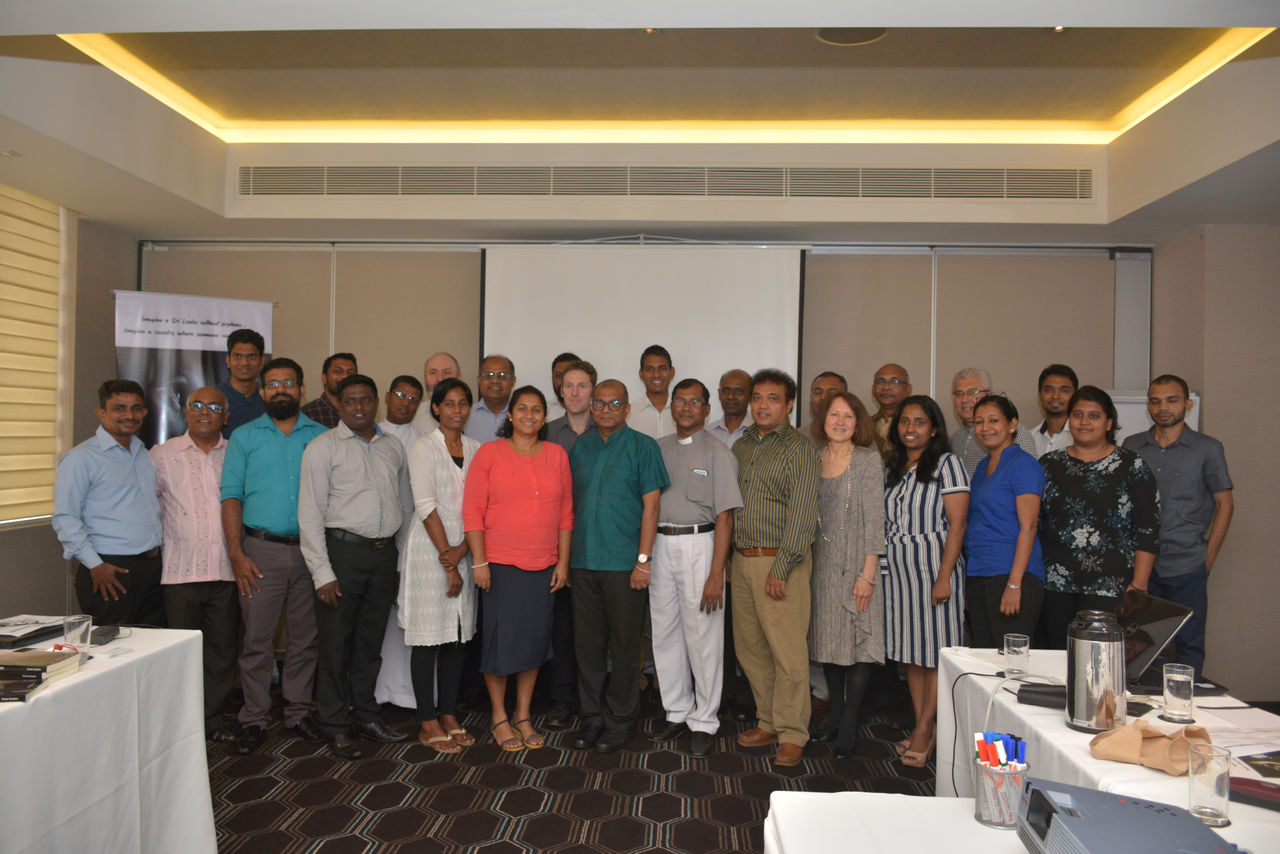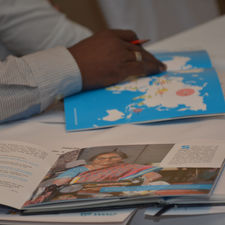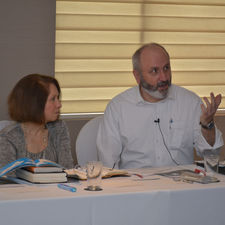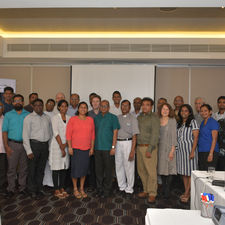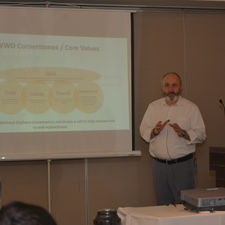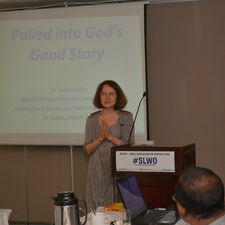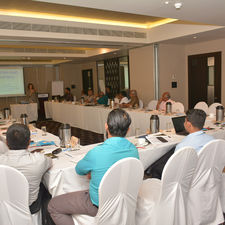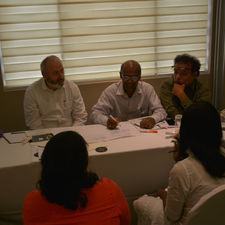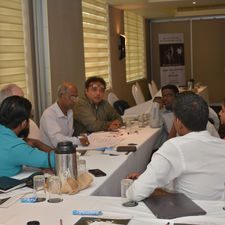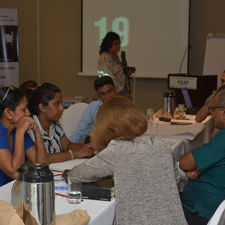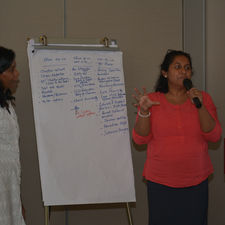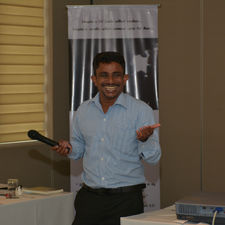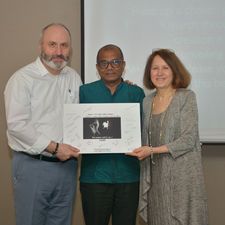The first Sri Lanka Without Orphans Roundtable was held in Colombo, Sri Lanka on the 21st of March. This event was organized and facilitated by the WWO team in partnership with the Evangelical Alliance of Sri Lanka and CERI Sri Lanka. Its goal was to bring together Sri Lankan leaders from churches (and denominations), NGOs, government, and leadership of a theological seminary, with a goal to help them understand the situation of orphans and vulnerable children in their own country and to lead them to a process of collaborative effort with the vision to see vulnerable children in families. 25 leaders explored together the current situation, and how the Christian community can play an important role in transforming Sri Lanka’s culture response to the needs of vulnerable children. Dr. Susan Hillis and Lubo Hlavacka (from the WWO Executive Team), Raghu Balachandran (Director of the Charity and Development Department of the Evangelical Alliance of Sri Lanka), and Dharshan Vijayaretnam (CEO of CERI Sri Lanka) facilitated the program.
As you know, our Sri Lanka brothers and sisters, including some of those in these meetings, have suffered significant tragedy last month. We encourage you to continue to lift them up in this challenging time and pray for the comfort of the Lord for parents who lost children and children who lost parents. Our friends at the World Evangelical Alliance report how God is working in and through the Sri Lankan Church in the midst of this tragedy:
Learn more about the response of the Evangelical Alliance and ways you can help!
The Sri Lanka Without Orphans Roundtable began with Lubo Hlavacka introducing the concept and vision of WWO and drawing attention to the Biblical mandate of looking after orphans as stated in James 1:27, sharing God’s intention of setting the lonely in families (“God is a father to the fatherless and settles the lonely in families” Psalm 68:5-6). Lubo Hlavacka and Susan Hillis also shared their knowledge, providing examples from their experiences working with other countries.
“We have more than 14,000 children in institutions and more than 50% of them have a single parent and 18% are orphans” explained Dharshan Vijayaratnam, Country Coordinator, Children Emergency Relief International (CERI). He presented statistics on the number of vulnerable children living in institutions in Sri Lanka - more than one million children live without their mothers’ care as they are away as migrant workers. There’s also a high incidence of almost 400 divorces happening a day. Further, 35% of mental patients reported are children between the ages of 5-19 years.
These shocking statistics reveal the sad disruption in homes and its effects on children. Dharshan explained the response to child care by the Sri Lankan Government, church based organisations and NGOs. Explaining further he stated “Providing family-based care and making available alternate care facilities and settling children in families is our main goal. In Batticaloa, we have introduced a kinship program for 85 children, the majority of whom have lost both parents in the war or due to the tsunami; they now live with relatives in a family environment. We encourage these families to continue to support the children”.
Participants were not only actively engaged in workshops, but also set practical next steps for working groups to meet and continue working together in the process of forming a country facilitation team and then creating and implementing practical steps.
A few highlights and other important information from these meetings include:
- 10 days before this first Sri Lanka Without Orphans Round Table, the country government passed a national Alternative Care Policy which strongly supports family based care for all orphans and vulnerable children in the country.
- The number of children affected is 14,000 children, living in 414 Children's Institutions; 12,000 of these children have one or both parents living, and much work needs to be focused in the coming years on family reunification; it will be essential that there is strong family reunification support in terms of case management and wrap-around care, in order for these children to be reintegrated into stronger families.
- While the number of children seems so high, there are 100 Christians for every one of the 14,000 children in the Child Care Institutions/orphanages.
- Because 70% of the orphanages are supported by Christian organizations, the government is particularly looking to Christian leaders to help, even though the country is 70% Buddhist and only 7% Christian!
- PREVENTION: There is also a great commitment of the Church to address root causes driving children to institutions, especially poverty and abuse, as estimates suggest one of every two children is seriously abused each and every year.
